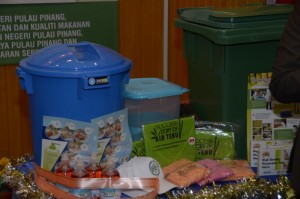Story by Amanda Khong
Pix by Shum Jian-Wei
SIXTEEN sellers of sugarcane juice, or better known as “air tebu” in Malaysia, will be the pioneers of the “Success Story of Air Tebu” programme which will fulfil all the requirements as stated in the Food Hygiene Regulations 2009
“I’m very proud to know that this launch of the Success Story of Air Tebu is the first in Penang and also in Malaysia. I would also like to take this chance to thank all the owners of the premises selling sugarcane juice who volunteered to join this programme to ensure the cleanliness of their premises and also of the sugarcane juice they are selling,” said Dr. Afif Bahardin, exco member for Agriculture and Agro-Based Industry, Rural Development and Health who was at the launching ceremony on Sept 15.
The main reason why this programme was introduced to the general public was to transform the current sugarcane juice making process into a safer and cleaner one.
The safe handling of the raw and fresh sugarcane is important as sugarcane juice is squeezed fresh from the sugarcane and ready to serve just like that.
Sugarcane juice is a local favourite but it is also one of the main suspects for food poisoning due to the fact that most vendors keep their raw sugarcane in places which are not clean.
This programme will see the 16 vendors voluntarily undergoing the new process of handling the sugarcane with continuous observation from Penang State Health Department
In return for agreeing to undergo the change, the 16 vendors will get some limited edition and one off additional equipment from the state government and they will also be advertised by the state as they will obtain the “Bersih, Selamat and Sihat” (BeSS) certificate.
The state hopes that this will help the vendors increase their revenue.
The BeSS certificates are given out to food and drinks premises that fulfil the requirement to ensure their processes and products are clean, safe and healthy.
In Penang, 31 premises were awarded the BeSS certificate but just recently, seven certificates were withdrawn because the owners moved location of their premises and failed to maintain the requirements.
Some premises’ certificates were withdrawn as food poisoning cases were reported at the premises

